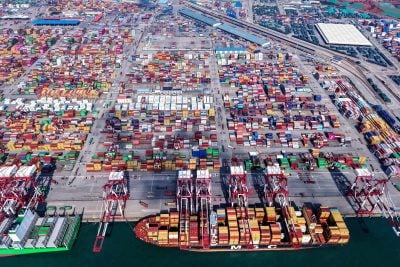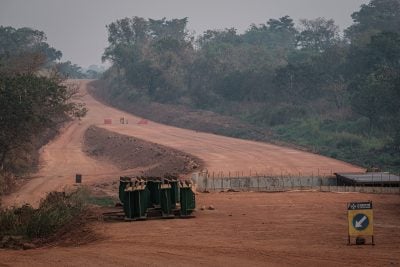For most people in Africa, Russia’s invasion of Ukraine is a faraway problem that has little bearing on their daily lives. Beyond the Ukraine-based African students who reported discrimination as they sought to flee the conflict in its early days, very few Africans have had first-hand experience of the war.
There seems to be a bifurcation of interest in the conflict. Commentators in the media, academia and think tanks have been discussing the war and its effects in Africa, especially as regards food security on the continent. But “ordinary” people are just getting on with their own activities.
Economic effects
The war in Ukraine is, however, having major downstream economic effects in Africa. Even before Russia’s war in Ukraine began in February, many parts of West Africa and the Maghreb were experiencing elevated levels of food inflation. Average food price in the last quarter of 2021 across West Africa was 39% higher than over the same period in the last five years.
Covid-19 has jammed up supply chains, caused an increase in freight costs and worsened logistics planning, a particular worry for African countries that import most of their food. Local harvests in West Africa have also been decimated by poor rainfall, the high cost of fertilisers, a lack of government support for the agricultural sector and many other factors.
Russia’s invasion of Ukraine has led to a sharp rise in the cost of wheat, a staple across Africa. Egypt is the most exposed country anywhere in the world — it imports 60% of its wheat from abroad, and sources 80% of those imports from Russia and Ukraine.
The price of palm oil, a fixture in many African dishes from Nigeria to Kenya, has also gone up. Neither Russia nor Ukraine produce the commodity but the interconnected nature of global markets has had a knock-on effect. Indonesia exports much of the stuff and has introduced export bans to keep prices stable at home.
Prospect of social unrest
Unaffordable prices of staple food have the potential to spark social unrest. In 2007 and 2008, drought-induced shortages of rice and wheat led to riots in many countries including Egypt. Most recently, the protests that toppled former Sudanese dictator Omar al-Bashir began in December 2018 as frustrations mounted when the government cut bread and fuel subsidies. This could explain why Egyptian authorities have fixed the price of unsubsidised bread.
The risk of social unrest is all too familiar. The worst of the soaring prices caused by the war may be yet to come. Ukraine’s planting season has been disrupted by the war and Russian exports are not flowing as freely as they used to.
Russia and its ally Belarus are the world’s biggest exporters of fertilisers, which could also affect local cultivation in Africa and as far afield as South America.
People in Africa may not be connecting the conflict with their day-to-day lives just yet, but this could only be a matter of time if things get worse as predicted. Leaders know they face an uphill battle to stave off economic anxieties that have yet to subside since the pandemic cratered many people’s livelihoods.
Aanu Adeoye – Mo Ibrahim Foundation Academy Fellow, Russia-Eurasia Programme, Chatham House.
This article originally appeared in the IC Intelligence publication Implications of the invasion of Ukraine for Africa.
Want to continue reading? Subscribe today.
You've read all your free articles for this month! Subscribe now to enjoy full access to our content.
Digital Monthly
£8.00 / month
Receive full unlimited access to our articles, opinions, podcasts and more.
Digital Yearly
£70.00 / year
Our best value offer - save £26 and gain access to all of our digital content for an entire year!

 Sign in with Google
Sign in with Google 





